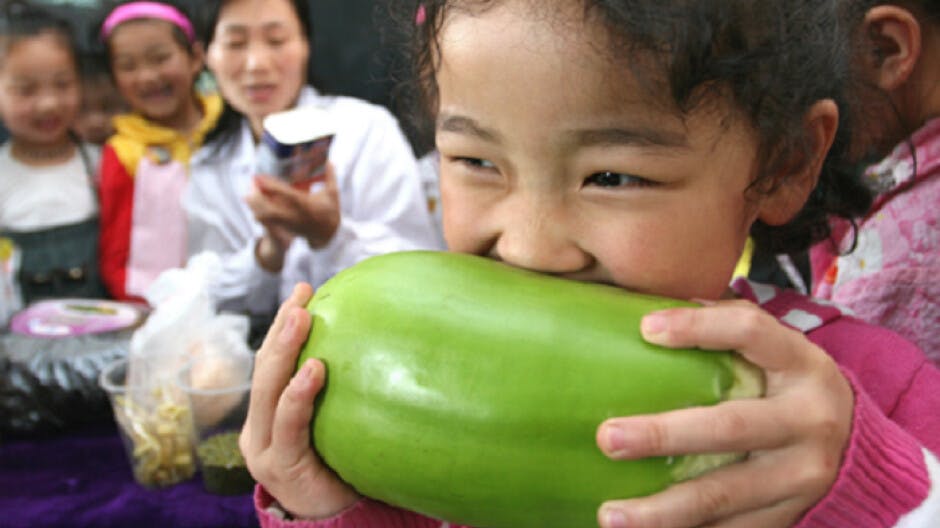口惠而實不至
口惠而實不至,表示只在口頭上答應給別人好處,而實際的利益,卻不到別人身上:You are only making an empty promise. You pay lip service.
不同的動詞,放在 mouth 前面,可以出現很多不同意思的成語:
put one’s money where one’s mouth is 用行動證明自已的說話,to show by your actions that you really mean something;
talk out of both sides of your mouth 在不同的場合,提供完全不同的意見;
shoot your mouth off 大聲炫耀自己,或張揚個人的意見;
take the words out of somebody’s mouth 搶先講出某人要講的話,anticipate what somebody is about to say;
laugh out of the other side of your mouth 警告某人:他現在雖然很成功,未來的情況有可能轉壞,英式說法是 laugh on the other side of your face,轉喜為憂,笑臉變苦臉,得意變成失意;
keep your mouth shut 保持緘默,閉嘴,停止談論,stop talking or speaking;
leave a nasty taste in one’s mouth 給別人留下極壞的印象,事件或經歷,使人感到厭惡或羞耻,leaving one with a bad impression and events or experience making you feel disgusted or ashamed afterwards。
味覺、品味、愛好
談到 taste 這個詞語,可以有三個層次的意思:
1. 味覺:taste is one of the special six senses by which a person knows one food from another by its sweetness, bitterness, saltiness, etc。
2. 品味、鑑賞力、審美的能力:taste is the ability to enjoy and judge beauty, style, art, music:你需要有音樂的鑑賞能力,才可以品味奧妙的古典樂曲,you need good taste before you can enjoy classical music;有人特別懂得穿衣服,she has excellent taste in dress。
3. 各人的愛好和興趣:taste is a personal liking for something, popular music is not everyone’s taste 不是人人都喜歡流行音樂。
Acquired Taste
各人有各人的口味。人的愛憎好惡,往往是無法解釋的:there is no accounting for taste: it is very difficult to understand why somebody likes something that you do not like at all。後天養成的愛好,要慢慢培養才會欣賞的事物,例如抽象藝術,紅酒和乳酪,稱為 an acquired taste:something that you do not like at first but gradually learn to like。近年有一本暢銷書:Stuff White People Like, 作者 Christian Lander 漫談美國白人男子的獨特品味,副題是:The Definitive Guide to the Unique Taste of Millions, 書中羅列150項生活上他們特別偏愛的物品和趣味,包括:free-trade gourmet coffee, different varieties of tea, cheese, sushi, organic food, Asian fusion food, Asian girls, Netflix, documentaries, vintage T-shirts, brunch, dinner parties, Apple products, New Balance shoes, and Barack Obama, etc。作者解釋:White people like Barack Obama because they are afraid that if they don’t they will be considered racist. These white guys believe they are unique, yet somehow they’re all exactly the same.
Flavour or Savour?
談到食物的味道,各人的口味便不相同。有人喜歡廣東菜清淡,有人偏好四川菜辛辣。Flavour 滋味 is a quality that only the tongue can experience. Savour 風味 is the taste or smell, especially a pleasant one: the meat had been cooked too long and lost its savour 這塊肉煮得太久,已經沒有什麽味道了。
至於食物的不同味道 different kinds of tastes:最常見的說法是 sweet 甜的、sour 酸的、bitter 苦的、hot 辣的。酸的形容詞有:tart, sharp, tangy(some fruits are tart and sting your tongue; a very sharp lemony taste; the orange juice has a delicious tangy taste);辣的有:hot, fiery, spicy(hot curry sauce; extremely fiery chilli con carne; rice with a spicy flavour);强烈味道的食物可以說:strong, rich, full-flavoured;淡乎寡味的食物可以說:tasteless, bland, insipid。如果菜餚不是甜味的,而是有香料味道的,可以說 a savoury dish;如果味道不好,令人反胃,something tastes very bad,可以說 disgusting, revolting, horrible;反之,好吃的食物,我們可以有三個選擇:tasty 可口的,having a strong and pleasant flavour and enjoyable to eat:那一餐飯很可口 That was a tasty meal;delicious 美味的,good to taste or eat:多麼美味的飯菜 What a delicious meal;savoury 好吃的、有滋味的,pleasant or attractive in taste: There was a savoury smell coming from the kitchen 厨房裡邊飄來一股誘人的香味。
本專欄逢周二、五發表






































